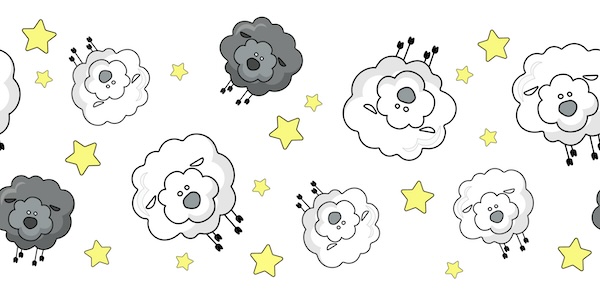Do Humans Dream of Analogue Sheep?
Looking to build on my previous blog of titled, “Can You Hear Music”, I thought I would spend some more time exploring the idea that some people utilise systems thinking without being aware of the concept, the fundamentals, the tools, or the methodology.
However, at this stage I want to insert a disclaimer. At no point do I want to suggest that people can’t develop to be “better” systems thinkers (for a self-defined version of better) by learning about the fundamentals, exploring the methodologies or by playing with the tools. Clearly exposure to fundamentals, methodologies and tools will help evolve an individual as a systems thinker, but in the same way some people can be natural musicians, so people may naturally think in systems.
Whilst there are few studies on individuals’ knowledge of systems thinking, however in the United States in 2017 Public Health Workers ranked systems and strategic thinking as the second highest ranked need for training (Hyder, 2020, p.119) and Hyder also notes that “despite these benefits of systems thinking, formal curriculum, educational materials, and trainings in systems thinking are limited”. Whilst in order to identify systems thinking as a training need it is probable that individuals would have heard the terms systems thinking, it is clear that they understood the value of developing skills in systems thinking. What is interesting is that Hyder broke systems thinking into six techniques:
- Ability to see the ‘Big Picture’
- Change Over Time
- Interdependencies
- Consequences
- Systems-as-Cause
- Transfers Understanding to Another Situation
Hyder then delivered a workshop teaching the six techniques and recorded participants knowledge for each technique pre- and post-workshop. and Hyder’s participants responses can be seen in figure below.

One flaw of taking a quantitative approach is that “people who do not have knowledge in a domain lack the tools that are necessary to accurately judge their own performance in that domain” (Guillory and Blankson, 2017, p.79) therefore it would be wrong to directly connect awareness of systems thinking techniques at the start of a workshop to how an individual rates their utilisation of those skills within their work environment, especially as individuals entering a training course may well have been exposed to Systems Thinking concepts as part of the pre-course process. However, there is the possibility that people may have been aware of systems thinking techniques prior to workshop being announced, and it is curious that there is not a bigger jump from pre-workshop to post-workshop.
It is worth considering Maani and Maharaj (2004, p.45) who noted “individuals who display the characteristics of systems thinking, even if they are oblivious to the fact, perform better on complex decision-making tasks” however in many cases bad decisions can be traced back to the way in which they were made—i.e., the possible alternatives were not well recognized or understood, the wide range of consequences was not adequately considered, and the pertinent information was not fully collected (Shaked and Schechter, 2019, p.573) and this also needs consideration, however it would be wrong to suggest that people make bad decisions because they don’t have an awareness of systems thinking.
I will leave the last word up to Dawidowicz, (2012, p.3) “there remains little research about the understanding of, learning of and use of systems thinking or even the understanding of the nature of systems themselves by individuals at large as part of their decision‐making process”.
References
- Dawidowicz, P., 2011. The Person on the Street’s Understanding of Systems Thinking. Systems Research and Behavioral Science
- Guillory, J. and Blankson, A., 2017. Using recently acquired knowledge to self-assess understanding in the classroom. Scholarship of Teaching and Learning in Psychology
- Hyder, A., 2020. Teaching systems science to public health professionals. Public Health
- Maani, K. and Maharaj, V., 2004. Links between systems thinking and complex decision making. System Dynamics Review
- Shaked, H. and Schechter, C., 2019. Exploring systems thinking in school principals:˜ decision-making. International Journal of Leadership in Education
